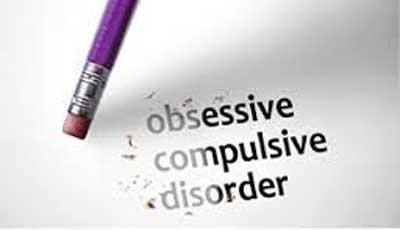- Home
- Editorial
- News
- Practice Guidelines
- Anesthesiology Guidelines
- Cancer Guidelines
- Cardiac Sciences Guidelines
- Critical Care Guidelines
- Dentistry Guidelines
- Dermatology Guidelines
- Diabetes and Endo Guidelines
- Diagnostics Guidelines
- ENT Guidelines
- Featured Practice Guidelines
- Gastroenterology Guidelines
- Geriatrics Guidelines
- Medicine Guidelines
- Nephrology Guidelines
- Neurosciences Guidelines
- Obs and Gynae Guidelines
- Ophthalmology Guidelines
- Orthopaedics Guidelines
- Paediatrics Guidelines
- Psychiatry Guidelines
- Pulmonology Guidelines
- Radiology Guidelines
- Surgery Guidelines
- Urology Guidelines
Cognitive behavioral therapy effective for children and adolescents with OCD

Some children and adolescents think that they will have an accident if they do not count all the lampposts on their way to school. Or cannot leave the house unless they have washed their hands precisely twenty-five times. They suffer from OCD, Obsessive Compulsive Disorder, which is an extremely stressful psychiatric disorder that affects between 0.25 and 4 percent of all children.
Fortunately, the treatment method - cognitive behavioral therapy - is both effective and well-documented. The hitherto largest research study of OCD treatment for children and adolescents aged 7-17 now shows that cognitive behavioral therapy also has a long-lasting effect. The Nordic research project, which involves researchers from Aarhus University and child and adolescent psychiatry clinics in Norway and Sweden, has shown that children and adolescents who benefited from the therapy were also free of patterns of compulsive behavior and compulsive thoughts one year after the treatment ended.
"The study makes clear that cognitive behavioral therapy reaches beyond the treatment period. This knowledge is important, both for the practitioners, but not least for the affected children and their families," says Per Hove Thomsen, one of the researchers behind the study and professor at Aarhus University and consultant at the Centre for Child and Adolescent Psychiatry, Risskov. He is also the final author of the results, which have just been published in the scientific journal Journal of the American Academy of Child and Adolescent Psychiatry.
"OCD is a very difficult disorder which demands a colossal amount of the child in question. It is almost impossible to live a normal life as a child and teenager with a normal level of development if you need to wash your hands a hundred times a day in a particular way in order not to be killed, which is something that compulsive thinking can dictate. For the same reason, early intervention is necessary before the disorder has disabling consequences in adulthood," says Per Hove Thomsen.
The children from the study were treated with cognitive behavioral therapy, which is a behavioral psychological treatment. Fundamentally it involves getting help to refrain from acting on compulsive thoughts and instead incorporating new thought patterns. The method also involves the whole family, as the effect is strengthened by the mother and father supporting the methods that the child is given to overcome the OCD.
Furthermore, according to Psychologist and Ph.D. David R.M.A Højgaard, who is the lead author of the scientific article, once the treatment is completed a watchful eye should still be kept on the child or teenager.
"The results of the study indicate that to maintain the effect in the longer term you need to remain aware and detect OCD symptoms so you can nip them in the bud before they develop and become worse. This is done by offering booster sessions to refresh the treatment principles and thereby prevent OCD from getting a foothold again," says David R.M.A Højgaard.
The collaboration with the Norwegian and Swedish child and adolescent psychiatry clinics has added knowledge that can be significant for the organization of OCD treatment.
"The biggest challenge facing OCD treatment is that there are not enough specially trained therapists and treatment facilities to meet needs. The study shows that if the level of training of therapists is consolidated and if supervision is provided, then it is possible to provide treatment in an isolated corner of Norway that is just as effective as the treatment provided at a university clinic," says Per Hove Thomsen.
The study is part of The Nordic Long Term OCD Treatment Study (NordLOTS) and comprises 269 children and adolescents with OCD from Denmark, Norway, and Sweden.
The results showed that 92 percent of the 177 children and teenagers who immediately benefited from the treatment were still healthy and free of symptoms one year after the treatment ended. Of these, 78 percent had no clinical symptoms of OCD.

Disclaimer: This site is primarily intended for healthcare professionals. Any content/information on this website does not replace the advice of medical and/or health professionals and should not be construed as medical/diagnostic advice/endorsement or prescription. Use of this site is subject to our terms of use, privacy policy, advertisement policy. © 2020 Minerva Medical Treatment Pvt Ltd